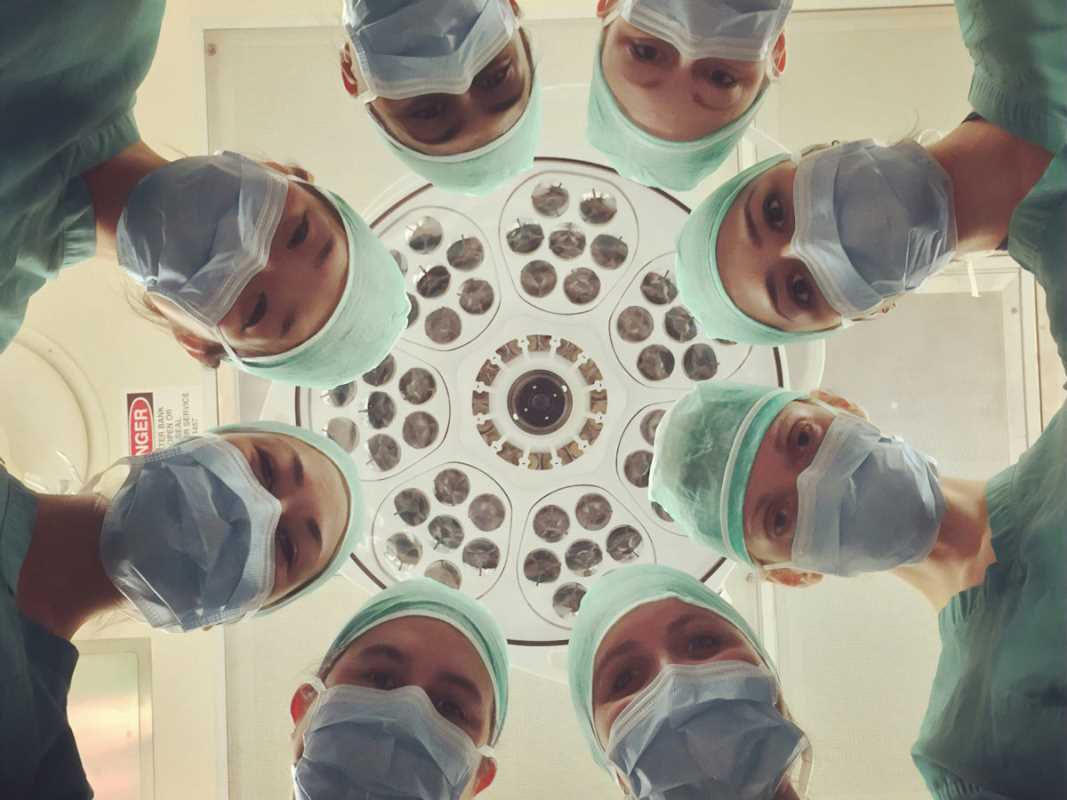Specialized education in healthcare can open doors to a variety of roles that go beyond traditional medical fields, providing the chance to make a significant impact in people's lives. Whether you’re drawn to direct patient care or supporting the backbone of healthcare systems, the demand for skilled professionals has never been greater. In this article, we'll explore how pursuing specialized education in healthcare can lead to exciting career opportunities and why healthcare is a fantastic field to consider for your future.
Exploring Various Specializations in Healthcare
Healthcare is a vast field with numerous specializations to choose from, ranging from hands-on medical care to the essential behind-the-scenes work that keeps healthcare systems running smoothly. Each specialization offers unique career paths with different job responsibilities, and the best part is that there's something for everyone.
Let’s take a closer look at some of the most popular and diverse specializations:
- Nursing: One of the most versatile and in-demand professions, nursing offers various roles, from bedside care in hospitals and clinics to teaching and research positions. With the ability to specialize further, nurses can focus on areas such as pediatrics, oncology, geriatrics, and even nurse anesthesia.
- Healthcare Administration: If you’re more inclined to manage and oversee the operations of healthcare facilities, a role in healthcare administration might be ideal. These professionals ensure smooth day-to-day operations of hospitals, nursing homes, and even insurance companies, balancing business management with healthcare needs.
- Medical Coding and Billing: For those with an eye for detail, medical coding is essential in ensuring healthcare providers are reimbursed correctly for services rendered. It involves translating medical diagnoses, procedures, and services into standardized codes for insurance claims, which are a key part of the healthcare reimbursement system.
- Radiology: Radiologists and radiologic technologists use cutting-edge imaging technology to diagnose and treat illnesses. From x-rays to MRIs and CT scans, this field blends healthcare with technology, requiring specialized training and expertise.
- Healthcare Informatics: In this tech-driven era, healthcare informatics combines healthcare with data analysis. Professionals in this field work with healthcare data systems to optimize patient care, improve hospital efficiency, and analyze trends in healthcare delivery.
The beauty of healthcare specializations is the flexibility to choose a career that aligns with your interests and strengths, whether you're passionate about direct patient care or prefer a role that supports the wider healthcare ecosystem.
The Growing Demand for Skilled Healthcare Professionals
The healthcare sector is one of the fastest-growing industries in the world, driven by an aging population, increased healthcare needs, and advancements in medical technology. According to the Bureau of Labor Statistics (BLS), healthcare occupations are projected to grow by 15% from 2019 to 2029, much faster than the average for all occupations. This increase in demand means that healthcare workers are needed in nearly every aspect of the industry, providing stability and job security for individuals pursuing a career in the field.
As baby boomers continue to age, the need for healthcare services, from long-term care to specialized treatments, will only continue to rise. Furthermore, the COVID-19 pandemic highlighted the urgent need for healthcare professionals across all areas, particularly in critical care, mental health services, and public health administration.
Not only does this growth led to job security, but it also presents an opportunity for career advancement. As demand increases, professionals who pursue specialized education and training in healthcare have the potential to quickly move up the career ladder.
Technological Advancements Shaping Healthcare Careers
Technology is rapidly transforming healthcare, leading to the creation of new roles and enhancing existing ones. As medicine evolves, so too does the need for healthcare professionals who can navigate and implement technological tools effectively. Specialized education in healthcare allows individuals to stay on top of the latest advancements and use technology to improve patient care.
For example, the rise of telemedicine has expanded opportunities for healthcare professionals to work remotely, providing consultations via video calls, phone consultations, and even remote patient monitoring. This shift allows healthcare workers to reach patients in rural areas or those with mobility issues, increasing access to care.
Additionally, healthcare informatics is becoming a vital field, helping to integrate electronic health records (EHR), manage patient data, and optimize workflows. Professionals in this field work at the intersection of IT and healthcare, using data to improve patient outcomes and hospital operations.
Some other notable technological innovations in healthcare include:
- Artificial Intelligence (AI): AI is being used for diagnostic tools, predictive analytics, and even robotic surgery, enhancing both efficiency and accuracy in healthcare.
- Wearable Health Devices: Wearables like smartwatches and health monitors collect real-time patient data, enabling doctors and patients to monitor chronic conditions like diabetes or heart disease remotely.
- 3D Printing: Used in prosthetics, implants, and surgical planning, 3D printing is revolutionizing how medical devices and customized treatments are developed.
The constant evolution of healthcare technology offers professionals in the field an exciting opportunity to continually learn and adapt, ensuring that their careers remain at the cutting edge.
The Impact on Patient Care
While pursuing a career in healthcare often starts as a means to secure stable employment, the ultimate reward lies in the opportunity to make a difference in people’s lives. Healthcare professionals directly impact patient care, improving the lives of individuals, families, and communities. Whether you are a nurse comforting patients during their recovery or a healthcare administrator making decisions that impact the quality of care in a hospital, the work you do has a profound effect on others.
Here are just a few ways specialized education in healthcare contributes to better patient outcomes:
- Direct Care: Nurses, doctors, and therapists provide hands-on treatment, offering essential care and support to patients throughout their medical journeys.
- Advocacy: Healthcare professionals advocate for patients, ensuring that their voices are heard, and their needs are met in a complex healthcare system.
- Prevention: Educating patients on preventive measures, such as vaccinations, healthy lifestyle choices, and disease management, can reduce the need for more extensive treatments later.
- Coordination: Healthcare administrators and managers ensure that different services within healthcare systems are well-coordinated, providing patients with seamless care across multiple departments.
By pursuing specialized education, healthcare professionals can be empowered with the knowledge and skills to provide the best possible care, fostering improved patient satisfaction and overall public health.
Career Development and Advancement in Healthcare
One of the most appealing aspects of pursuing a specialized education in healthcare is the array of career development opportunities available. The healthcare industry offers clear paths for advancement, as professionals with specialized skills and experience are highly sought after.
From clinical leadership positions to healthcare policy roles, individuals can continuously grow and expand their careers. Here are some examples of career advancement opportunities in healthcare:
- Leadership Roles: With years of experience and further education, healthcare workers can transition into management or executive positions, such as nursing manager, hospital administrator, or medical director.
- Research and Academia: Those with a passion for inquiry and education can move into research roles, contributing to advancements in medical science, or become educators who train the next generation of healthcare professionals.
- Consultancy: Experienced healthcare professionals can also offer their expertise as consultants, advising hospitals, clinics, or insurance companies on best practices, efficiency improvements, or patient care strategies.
In addition to these leadership and specialized roles, healthcare professionals are often encouraged to pursue further certifications or higher degrees to stay competitive and grow within their chosen field.
A Rewarding and Fulfilling Career in Healthcare
Specialized education in healthcare offers a gateway to a world of career opportunities that are both rewarding and impactful. With a range of specializations to choose from, high demand for skilled professionals, technological advancements, and the chance to make a difference in patient care, pursuing a career in healthcare through specialized education can lead to a fulfilling and successful professional journey.
Whether you aspire to become a nurse, healthcare administrator, medical coder, or work in any other healthcare specialization, investing in specialized education can set you on a path to a meaningful and prosperous career in healthcare. With the industry expanding and evolving, there’s never been a better time to explore a healthcare career, all while knowing that your work will help make the world a healthier place.
 (Image via
(Image via



.jpg)

